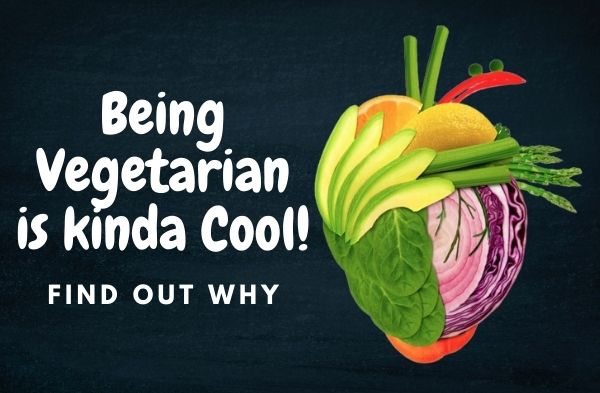The Benefits of Being a Vegetarian
Being a vegetarian has numerous benefits, not only for your health but also for the environment and animal welfare. In this article, we will explore the various advantages of adopting a vegetarian lifestyle and how it can positively impact your life and the world around you.
Improved Health
One of the key benefits of being a vegetarian is the positive impact it can have on your health. Vegetarian diets are typically rich in fruits, vegetables, whole grains, legumes, and nuts, which provide essential nutrients, vitamins, minerals, and antioxidants. These nutrients contribute to a reduced risk of chronic diseases such as heart disease, high blood pressure, type 2 diabetes, and certain types of cancer.
Studies have shown that vegetarians often have lower cholesterol levels, lower blood pressure, and a lower body mass index (BMI) compared to non-vegetarians. By eliminating or reducing the consumption of animal products, vegetarians tend to consume fewer saturated fats and cholesterol, leading to improved cardiovascular health.
Weight Management
Another advantage of a vegetarian diet is its potential for weight management. Plant-based diets are generally lower in calories and saturated fats, making it easier to maintain a healthy weight. Fruits, vegetables, and whole grains are high in fiber, which promotes feelings of fullness and reduces overeating.
Furthermore, a vegetarian diet can help control appetite and cravings due to its high fiber content. By focusing on nutrient-dense foods, vegetarians can enjoy a satisfying diet without the need for excessive calorie counting or restrictive eating patterns.
Environmental Sustainability
Choosing a vegetarian lifestyle also benefits the environment. Livestock production is a significant contributor to greenhouse gas emissions, deforestation, and water pollution. By reducing or eliminating the consumption of animal products, you can significantly decrease your carbon footprint.
Animal agriculture requires vast amounts of land, water, and feed, leading to deforestation and depletion of natural resources. Adopting a vegetarian diet helps conserve these resources and reduces the pressure on ecosystems, contributing to a more sustainable planet.
Animal Welfare
One of the ethical reasons for becoming a vegetarian is the concern for animal welfare. Many people choose vegetarianism to avoid supporting industries that exploit animals for food. By abstaining from meat consumption, you can contribute to reducing animal suffering and promoting more compassionate treatment of animals.
The meat industry often involves practices that prioritize profit over animal welfare, including overcrowded and unsanitary conditions, routine use of antibiotics, and inhumane slaughter methods. By choosing a vegetarian lifestyle, you can take a stand against these practices and support a more humane treatment of animals.

In conclusion, the benefits of being a vegetarian are numerous and extend beyond personal health. By adopting a vegetarian lifestyle, you can improve your overall well-being, contribute to environmental sustainability, and promote animal welfare. With a diet rich in plant-based foods, you can enjoy a variety of flavors while making a positive impact on your health and the world around you.
Frequently Asked Questions about the Benefits of Being a Vegetarian
1. What are the main health benefits of being a vegetarian?
Being a vegetarian can help reduce the risk of heart disease, lower blood pressure, and decrease the likelihood of certain types of cancer.
2. Can being a vegetarian help with weight management?
A vegetarian diet, when well-balanced, can be beneficial for weight management as it is typically low in saturated fats and high in fiber.
3. Are there environmental benefits to being a vegetarian?
A vegetarian lifestyle reduces greenhouse gas emissions, conserves water, and minimizes deforestation associated with animal agriculture.
4. Can being a vegetarian provide enough protein?
Yes, a well-planned vegetarian diet can provide all the necessary protein through plant-based sources such as legumes, tofu, tempeh, and seitan.
5. Are there any potential nutrient deficiencies in a vegetarian diet?
A vegetarian diet may require careful attention to ensure adequate intake of nutrients like iron, vitamin B12, omega-3 fatty acids, and calcium.
6. Can being a vegetarian help prevent certain chronic diseases?
Research suggests that vegetarians have a lower risk of developing conditions like type 2 diabetes, obesity, and certain gastrointestinal disorders.
7. Is it possible to get enough energy for physical activities on a vegetarian diet?
A well-planned vegetarian diet can provide ample energy through nutrient-rich foods like whole grains, fruits, vegetables, and plant-based proteins.
8. Can being a vegetarian improve digestion?
Vegetarian diets, particularly those rich in fiber from fruits, vegetables, and whole grains, can promote healthy digestion and prevent constipation.
9. Are there psychological benefits to being a vegetarian?
Some individuals experience psychological benefits such as increased empathy towards animals, improved mood, and a sense of personal ethics.
10. Can being a vegetarian contribute to a longer lifespan?
Studies have shown that vegetarians tend to have a longer lifespan and lower mortality rates compared to non-vegetarians, likely due to their healthier lifestyle choices.




